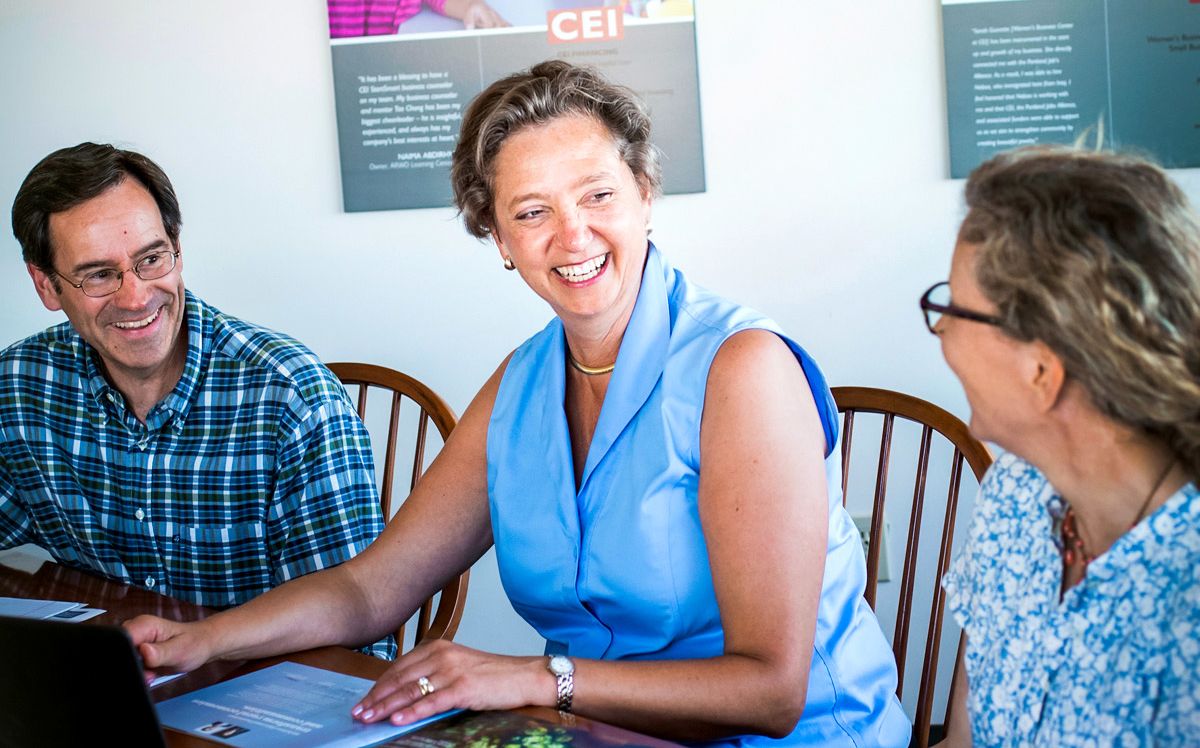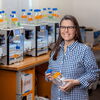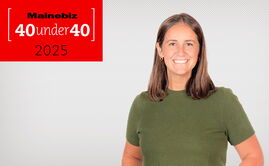Women to Watch: Betsy Biemann, CEO with a single vision, many solutions for Maine prosperity
 Photo / Tim Greenway
Betsy Biemann, CEO of Coastal Enterprises Inc.
Photo / Tim Greenway
Betsy Biemann, CEO of Coastal Enterprises Inc.
Betsy Biemann is CEO of Coastal Enterprises Inc., a community development financial institution based in Brunswick. But her business card could include a host of other job descriptions.
Biemann, with CEI President Keith Bisson, leads strategy development, oversees finances, directs external relations, manages a team of 80 employees and works closely with CEI’s board and those of its five subsidiaries.
None of those duties were on the horizon when she began her career.
Her father was an organic chemist who worked on the Apollo space flight missions. Growing up in Massachusetts and New Hampshire, Biemann says, she assumed she’d be a scientist too. Dinner-table conversations were a regular source of inspiration.
“When other kids were talking about the Bruins, we were talking about whether there was life on the moon,” Biemann says, during a visit to CEI’s branch office on the Portland waterfront.
But after she earned a Harvard undergraduate degree in biology and the history of science, her wide-ranging interests and abilities led her in an unexpected direction. Specifically, to Kenya, where Biemann served as a Rotary fellow and helped with rural education projects.
Along the way, she realized she wasn’t cut out for life in a lab.
“I discovered I prefer solving 20 problems at once rather than spend 20 years solving one problem,” she says.
Which is a good thing, given the diverse functions of CEI.
One-stop shopping
CEI was founded in 1977 with the goal of expanding economic opportunity for people in Maine. The nonprofit corporation provides a wide range of financing and business counseling services for entrepreneurs throughout the state, advocates about rural economic issues, and serves as a policy expert on Maine’s natural resource-based industries.
In more urban states, community development financial institutions, or CDFIs, tend to specialize in a particular type of business assistance, since there are more of them available. But the one-stop-shop approach makes sense for Maine, according to Biemann.
“Particularly in a small-business state like Maine, business people don’t necessarily have all the skills they need at the outset,” she says.
The impact of the work is felt statewide. “We work in Portland, we work in smaller gateway cities and towns, we work in very rural areas,” says Biemann. “CEI helped finance the Farnsworth Museum and the Center for Maine Contemporary Art in Rockland, and we’ve also worked with a Nigerian pharmacist who started a pharmacy in Eastport.”
A 2018 report sums up the results of CEI’s work to date.
Through investments, tax credits and loans, CEI has provided $1.39 billion in financing since its start. Another $2.8 billion has been leveraged through state and federal programs.
The financing has fueled the growth of more than 2,800 businesses. Over 58,000 business people have received technical and management advice from CEI. Its work has resulted in the creation or retention of about 40,000 full-time jobs.
New alignment, new needs
Biemann took on her current role at CEI in 2016, after serving on its board. She says one of her goals is to ensure all the organization’s activities are supporting its overarching mission of creating good jobs, environmentally sustainable enterprises and broadly shared prosperity.
“Over the past three years, we’ve tried to work harmoniously across the organization,” she says. “CEI has done many things over time, but we’re doing them in a way that’s more aligned now.”
One of the key priorities she sees ahead for Maine is increasing rural access to high-speed internet. She compares it to the need for electricity, and the lack of electric utilities a century ago in large, mostly agricultural swaths of the country. Eventually, that led to the building of a massive infrastructure under the Roosevelt administration.
“America recognized that if rural communities didn’t have electricity, they’d be left behind,” she says. “Expecting small businesses to reach markets and that young people will stay and thrive without fast internet access is another big challenge.”
A single mission
Biemann is well prepared to lead CEI into its fifth decade.
Prior to her role at CEI, Biemann led the Maine Food Cluster Project of the Mossavar-Rahmani Center for Business and Government, and advised businesses, nonprofit organizations and social enterprises in Maine and nationally.
From 2005-12, she served as president of the Maine Technology Institute. Earlier, she served as an associate director at the Rockefeller Foundation in New York City, where she managed a national grant and investment program dedicated to increasing employment in low-income communities.
When she considers the diverse stages in her career, she sees a common thread.
“I’ve always tried to go in a direction that uses knowledge to make the world a better place,” she says.
That’s a professional path with another family inspiration.
“My father and grandparents came to this country and were able to build a life here,” she adds. “I think everyone should have that opportunity.”














0 Comments